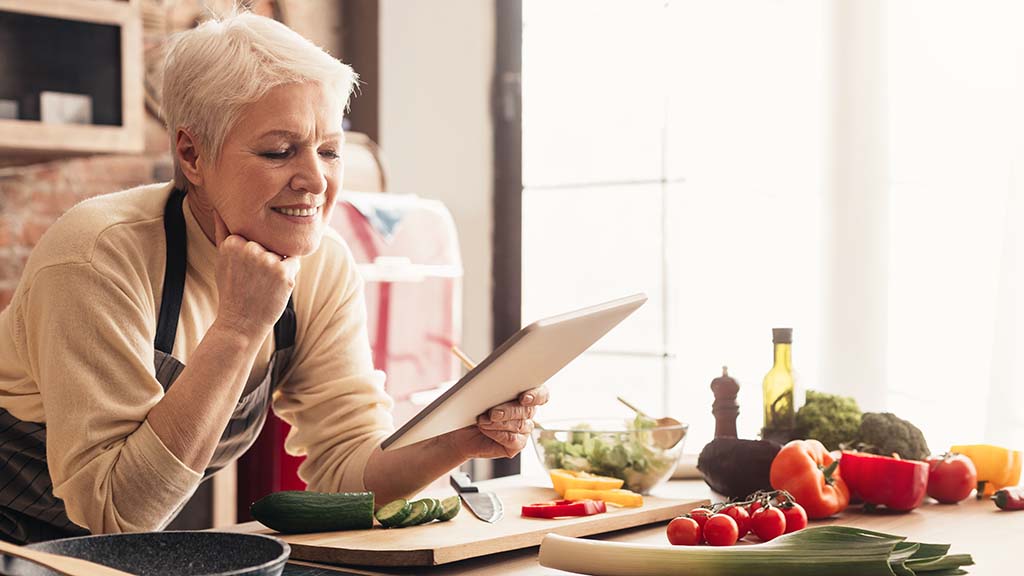Even in healthy older individuals, physiological changes can lead to lower calorie requirements, which can lead to decreased food consumption and changed body composition. This can be exacerbated by changes in hormone levels that alter how soon you feel full, as well as a loss of smell and taste.
Depression, a loss of freedom, and social isolation can make eating less enticing, leading to an unhealthy diet. All of this might contribute to a reduction in calorie and nutrient intake, resulting in unintentional weight loss and exhaustion.
In this guide, we at Discovery Commons South Biscayne would like to tell you about the important dietary elements and other factors to keep in mind when preparing healthy meals for seniors.
Healthy Fats
Choose healthy fats as a source of concentrated, nutritious calories. Avocado, peanut butter, peanuts and other types of nuts, canola oil, fatty fish like mackerel, sardines, and salmon, and olive oil are all good sources of healthy fats. Saturated fats, such as fatty red meat, should be avoided.
Dietary Fiber
Incorporate dietary fiber into your daily diet. Fiber helps to maintain regular intestinal function and may reduce the risk of type 2 diabetes and heart disease. Total fiber consumption for individuals over 50 should be at least 30 grams per day for males and 21 grams per day for women, according to authorities in the medical field. Fiber may be found in most legumes, whole grains, vegetables, and fruits. Seeds and nuts are other healthy sources, but if you have dental issues or wear dentures, whole-grain bread and beans may be easier to chew. As you increase your fiber consumption, make sure to drink lots of water.
Portion Size
Portion sizes should be adjusted. Reduce portion sizes rather than abandoning components of a balanced meal if you are attempting to maintain a healthy body weight. If you are trying to gain weight, try increasing your portion sizes instead of consuming foods heavy in added sugar and harmful saturated fat.
Time of Day
In comparison to the evening, some older individuals report that their hunger is stronger in the morning and during the day. If this is the case, have a balanced midday meal and a nutritious breakfast that contains fruit, whole grains, and protein. Then, do not eat as much for dinner or supper.
Delivery Services
When challenges to good eating arise as you become older, you may need to think outside the box. Try a grocery delivery service if you have difficulties getting out of the home or carrying large grocery bags. This gives you the option of purchasing online and having your food delivered to your doorstep.
Meal Preparation
If cooking for yourself every day seems too much work, or if your energy is dwindling by the evening, consider preparing a few meals during the weekend. Refrigerate or freeze them until you are ready to reheat them during the week. One-pot dinners are a fantastic way to rapidly prepare nutritious, balanced meals that are also affordable, which is something to keep in mind as you get older.







